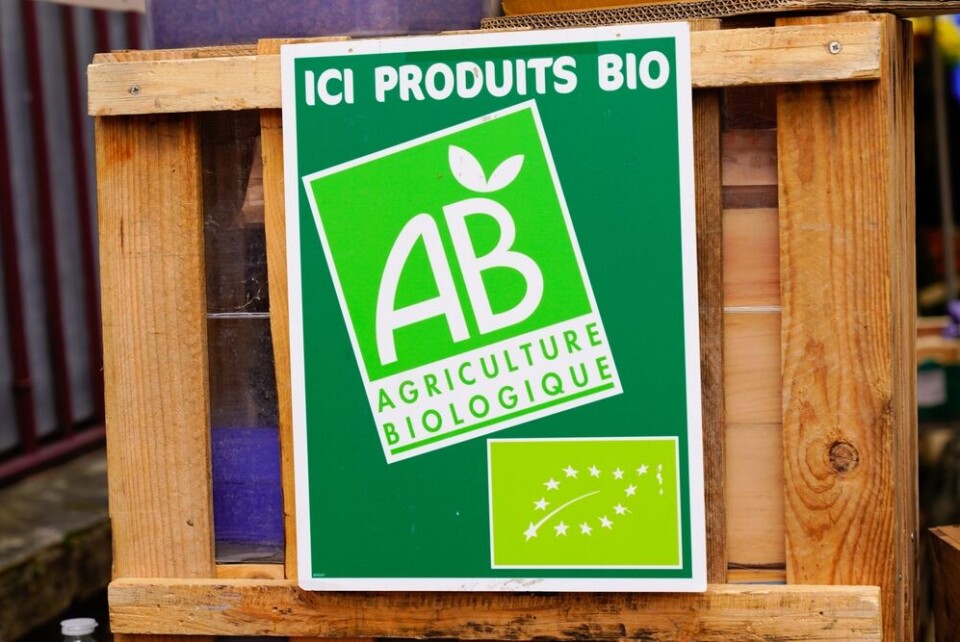-
New Paris-Jersey direct flight to launch this summer
Loganair route forms part of Channel Island’s tourism boost plan
-
Death of right-wing protester in Lyon sparks fears of further political violence
Quentin D, 23, died after reportedly being ambushed by far-left activists near site of political conference
-
Red flood alerts continue in south-west - and more heavy rain expected
Garonne river is particularly affected. French weekly weather forecast February 16 - 20
First 100% organic E.Leclerc supermarket in France closes
The closure comes four years after the store opened, due to a lack of clients, even as the sector booms in France, and prices rise less for organic than regular produce

The first 100% organic E.Leclerc supermarket in France has closed four years after it first opened with a mission to “become the European leader in organic” produce.
The group said it was closing the shop and rebranding it as a regular “Leclerc Express” store due to a lack of clients.
The 100% organic store first opened on January 18, 2018 at Fontaine-lès-Dijon (Côte-d'Or, Bourgogne Franche Comté). At the time, head of the group Michel-Edouard Leclerc said his mission was to “become the European leader in organic” produce.
The brand had planned to open 40 more 100% organic shops in 2019 and 200 more in 2021, under the brand name “Le Marché bio Leclerc (The Leclerc Organic Market)”.
However, only 17 of the shops have opened in France, after the brand did not reach its projected sales figures. Reports from Fontaine-lès-Dijon suggested that some of the products did not clearly state clear origins of the produce.
This is despite Leclerc having seen 3% growth in 2021, Mr Leclerc said in an interview in March, partly due, he said, to its “specialist concepts”.
Organic boom…and cost
The closure comes as organic food has seen a boom in France over the past few years, with figures from l’Agence Bio showing that it has been on the rise since 2017, prompting many supermarkets bringing in their own organic ranges.
However, a study from 2020 found that buying organic in supermarkets was not necessarily cheaper than buying them in health food shops, and a report by Consumer association CLCV (l'Association nationale de défense des consommateurs et usagers) found that organic fruit and veg is 44% more expensive than their non-organic equivalents.
The same study found that 80% of people in France said their main barrier to buying organic food was the cost.
Organic seeing lower price rises
Yet, new figures from l’Agence Bio has shown that despite the soaring cost of living and rising food prices across Europe, partly as a result of the war in Ukraine, organic produce is less likely to be affected by increased costs.
In an interview from March 29, Laure Verdeau, director at l’Agence Bio, said that the market has stopped growing for the first time in years, and that consumers still often lack enough information about the products’ origins.
In 2021, sales dropped by 3.1% compared to 2020, the l'Institut de recherche et d'innovation (IRI) said, although 90% of people in France continue to consume organic foods fairly regularly, Agency figures show.
Ms Verdeau said that organic food prices have risen, but at the same time as non-organic food prices. She said that in some cases, organic had risen by less, such as organic flour (18% rise) compared to non-organic flour (20% rise).
She added that organic food may also see lower price rises as it is less dependent on pesticides and synthetic nitrogen fertilizers, whose costs are soaring. Similarly, many more organic products have lower carbon footprints and fewer travel costs as they are more local, which can also lower prices.
However, Ms Verdeau said that many people in France still see organic food as the more expensive option, and that encouraging people to “fill their plate with organic” in order to save costs would require more education and awareness.
Related articles
Organic produce in France 'not cheaper' in supermarkets
Organic in France is booming but aid cuts for farmers causing concern
What is meant by the 'écoresponsable' label on French fruit?
























